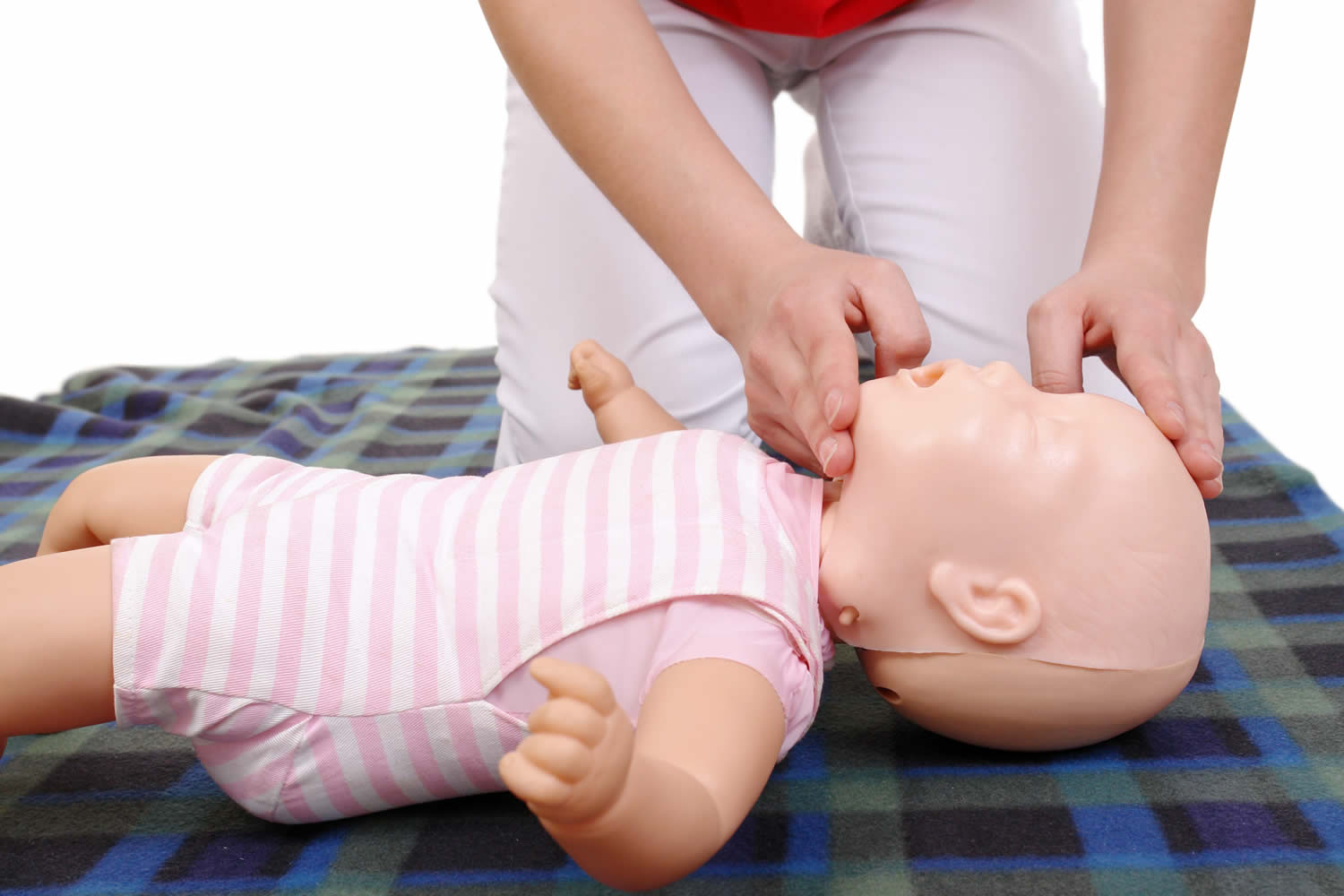

Ensuring the safety and well-being of infants is a top priority for parents and caregivers. The ability to respond effectively in an emergency can make a life-saving difference. Understanding basic life support for infants is an essential part of this readiness. These critical skills, including chest compressions and rescue breaths, allow caregivers to provide immediate help in the event of a choking hazard or sudden medical issue.
Infants are delicate and need special care, especially during emergency situations. Unlike adults, their tiny bodies require different techniques and approaches. Becoming familiar with these methods is crucial for anyone who is responsible for the care of young children. Learning about the use of automated external defibrillators (AEDs) in infant emergencies adds to this life-saving knowledge.
Gaining these skills through proper certification not only bolsters confidence but also strengthens the protective environment for the youngest and most vulnerable among us. In Dallas, prioritizing basic life support training ensures every caregiver is well-prepared to handle unexpected crises, providing infants with the best chance for safety and recovery.
Basic life support (BLS) is a set of emergency procedures that can save a life during critical situations. For infants, BLS involves a special approach tailored to their delicate size and unique needs. Key components include proper chest compressions and rescue breath training, both crucial to maintaining blood flow and oxygen supply until emergency services arrive.
Infants are particularly vulnerable in emergencies due to their small airways and rapid breathing. This makes them more susceptible to choking and abrupt breathing problems. Basic life support training for infants helps caregivers understand how to address these issues safely and effectively.
In BLS, performing chest compressions on infants requires special care. It involves using the appropriate amount of force and technique to avoid injury while ensuring effective aid. Rescue breaths ensure that oxygen reaches vital organs, supporting life functions during breathing interruptions. Understanding how to balance these measures is an integral part of BLS training.
Parents, caregivers, and even older siblings in Dallas can benefit from learning infant BLS. By gaining these skills, they contribute to a safer environment for infants, providing peace of mind and readiness for unexpected situations.
An automated external defibrillator (AED) is a device used to help those experiencing sudden cardiac arrest—a condition that can also affect infants. Early AED usage can be vital in these emergencies, increasing the chance of survival. While AEDs might seem intimidating, understanding their function is key to successful intervention.
AEDs deliver an electrical shock to restore a regular heart rhythm. In infants, timely application of an AED can enhance efforts to stabilize heart function during a crisis. Knowing how and when to apply an AED makes a significant difference in the outcome of these critical situations.
Using an AED on infants involves specific guidelines, as the device’s settings must cater to their smaller, sensitive bodies. Training in AED usage equips caregivers with the confidence to operate these machines correctly, ensuring they offer the best care possible.
In Dallas, promoting awareness of AED availability and encouraging training among parents and caregivers bolsters a community culture of preparedness. By learning these skills, caregivers can provide vital assistance when every second counts, reinforcing the well-being of infants in emergencies.
Performing cardiopulmonary resuscitation (CPR) on infants differs significantly from performing it on adults. Recognizing these differences is crucial for effective intervention in emergencies. One primary distinction lies in the force and method used during chest compressions. Infants, being smaller and more fragile, require gentle, yet effective compressions to prevent injury while still maintaining blood flow.
Compression Technique: For infants, two fingers are usually used for compressions, rather than the heel of the hand used on adults. This adapts the pressure to their delicate chest to avoid harm.
Breath Support: Rescue breathing also varies. Infants need smaller, more frequent breaths compared to adults. The caregiver covers both the mouth and nose to deliver breaths, ensuring the delicate airways are opened effectively.
Rate of Compressions: The rate of compressions should be rapid. While adult CPR emphasizes a moderate pace, infant CPR requires a quicker rhythm due to their faster heart rates.
Understanding these differences is vital for anyone responsible for infant care. By accommodating these variations, caregivers can perform CPR with confidence, knowing they’re applying the safest techniques for the best outcomes.
Encouraging caregivers to pursue basic life support (BLS) certification enriches their ability to protect infants in emergencies. Certification provides structured, practical training that makes caregivers more adept at handling urgent situations confidently. For parents and babysitters in Dallas, having this qualification means reassurance and readiness for anything unexpected.
There are several benefits to gaining BLS certification:
Skill Enhancement: Participants gain hands-on experience, which builds competence in delivering CPR, using AEDs, and performing rescue breaths.
Updated Knowledge: Courses often include the latest guidelines and techniques, ensuring that caregivers are prepared with the most current life-saving information.
Community Safety: By increasing the number of certified individuals, Dallas becomes a safer place with caregivers ready to act in emergencies involving infants.
Certification classes also foster a sense of community among caregivers, creating support networks where they share experiences and knowledge. An emphasis on ongoing training and certification renewal keeps skills sharp and allows caregivers to adapt to new best practices. By prioritizing BLS certification, caregivers not only enhance their personal skills but contribute to the broader safety of their community.
Understanding and applying basic life support for infants is a powerful skill that can potentially save lives. By focusing on the specialized techniques needed for infants and realizing the critical role of AEDs, caregivers are better prepared to handle any crisis effectively. Proper training significantly expands the ability to respond correctly, transforming potentially overwhelming situations into manageable ones.
For those who care for infants in Dallas, Rapid CPR Dallas offers a supportive environment to gain these necessary skills. Our classes are designed to equip you with the knowledge and practice you need to confidently perform BLS. Learn how to safeguard the tiny lives that mean the most to you today. Join our CPR certification classes and take the next step towards becoming a trusted guardian in your community.

